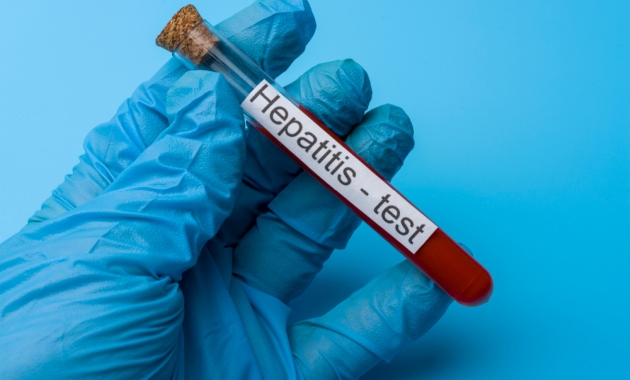
Did you know every 30 seconds, someone dies from a viral hepatitis-related illness[1]? Hepatitis is the liver inflammation most commonly caused by a viral infection. World Hepatitis Day is marked on 28 July yearly to raise awareness about the disease and the need for testing and treatment. Your liver is a vital organ that processes nutrients, filters the blood, and fights infections. When the liver is inflamed or damaged, your body’s significant functions are compromised and can even take away your life. In alignment with this cause, this year, WHO has announced the theme “One Life. One Liver.”
The liver is associated with more than 500 vital functions. Take care of your liver with our liver care range. Explore here!
6 Tips To Prevent Hepatitis
Often caused by a viral infection, hepatitis A and E are acute infections that spread through contaminated food, water, and sexual contact. Hepatitis B gets transmitted from mother to baby at birth, from family member to child, by sexual contact, and even by sharing razors with infection.
Hepatitis B, C, and D are chronic infections that spread on receiving contaminated blood or using contaminated equipment during medical procedures.
However, with available prevention, testing and treatment services, every hepatitis-related death can be prevented. This World Hepatitis Day, let’s shed light on the common diagnostic tests available to detect hepatitis and ways to prevent it.
Need for Testing Hepatitis
More than 60% of liver cancer cases are due to late testing and treatment of hepatitis B & C infections [2]. Moreover, hepatitis, if not treated on time, can progress to cirrhosis or liver cancer. The hepatitis B virus remains infectious for prolonged periods and can spread even without visible blood!
Viral hepatitis such as hepatitis A (HAV), hepatitis B (HBV) and hepatitis C (HCV) can be diagnosed with the help of symptoms, a physical exam and blood tests.
Diagnostic Tests for Hepatitis
Blood tests help diagnose hepatitis by identifying specific markers and assessing liver function. Some of these include:
1. Hepatitis A Virus (IgG): It detects previous exposure or immunity to hepatitis A infection.
2. Hepatitis A Virus (IgM): It checks for the presence of IgM antibodies produced against the hepatitis A virus when the body is first exposed to Hepatitis A.
You can also opt for the Hepatitis A virus (HAV) –Total Antibody test if you want to evaluate both IgM and IgG antibodies in the blood.
3. Hepatitis B (Surface) Antigen: This test is done to find out the actual presence of the hepatitis B virus (called the “surface antigen”) in your blood.
4. Hepatitis B Virus – Viral Load, Quantitative: It helps detect and quantify hepatitis B virus (HBV) DNA in patients with chronic HBV infection, along with monitoring disease progression and response to Antiviral therapy.
5. Hepatitis B Surface Antibody: With this test, your doctor can detect and diagnose hepatitis B virus (HBV) infection by looking for antibodies produced in response to the protein on the viral surface.
6. Hepatitis C Virus Total Antibody: It is performed to detect and diagnose hepatitis C virus (HCV) infection and screen individuals with risk factors, people who have symptoms associated with hepatitis, or those who have been exposed to the virus.
7. Hepatitis C Virus – Viral Load, Quantitative: This test is also known as the hep C RNA test, which measures the amount of hepatitis C virus, often referred to as “viral load” in the blood. It helps in treatment monitoring & recurrence detection.
8. Hepatitis C Virus – Genotyping: It helps to determine the type of HCV virus that has infected the patient. Pre-treatment analysis of the hepatitis C genotype is used to determine the duration of therapy & predict therapeutic response.
If you are suffering from HCV infection, book Hepatitis C Virus – Genotyping test to find the right antiviral therapy. Book now!
Early diagnosis through these blood tests enables timely intervention and management and can help with improved patient outcomes.
Tips to Prevent Hepatitis
Preventive measures can help reduce the spread of the virus, safeguarding individuals from potentially life-threatening liver diseases. Follow these tips to curb the transmission of hepatitis and minimize its impact on health:
1. Get vaccinated: While children are given these between 12 and 23 months of age, older children and adolescents can get the vaccine at an interval of 23 months.
2. Refrain from sharing personal hygiene items: Razors, nail cutters, toothbrushes, etc., can carry some blood or other body fluids, increasing the risk of hepatitis B & C.
3. Practice safe sex: Unprotected sex increases your risk of hepatitis B and C.
4. Take your medicines as prescribed: Taking them in excess or mixing them will not quicken your disease recovery; it can harm your liver.
5. Avoid reuse of needles: This includes needles used for tattoos and body piercings.
If you have been recently diagnosed with viral hepatitis, here are a few tips to help improve your condition. These include:
– Cutting down on alcohol as it can damage your liver and worsen the condition.
– Keeping a check on your weight in a healthy range, especially if you have hepatitis C. Being overweight can lead to excess fat buildup in the liver and hepatitis C is harder to control.
– Ensuring proper management as most people with acute hepatitis get the symptoms resolved over weeks to months. But, some may develop a chronic infection.
Please note: Phlebotomists, doctors, or any healthcare professional exposed to blood or body tissues on the job is very at risk of getting hepatitis B infection. Ensure to get post-exposure prophylaxis if exposed to hepatitis-virus-infected blood.
Remember! 9 in 10 people with hepatitis are unaware of their diagnosis[1]. It is essential to get diagnosed on time to manage hepatitis in time.
Healthy Liver, Healthy You!
(The article is written by Dr.Subita Alagh, Senior Executive, and reviewed by Monalisa Deka, Senior Health Content Editor)
References:
1. What is viral hepatitis? World Hepatitis Alliance. Available online at https://www.worldhepatitisalliance.org/what-is-viral-hepatitis/
2. World Hepatitis Day 2018. World Health Organization. Available online at https://www.who.int/campaigns/world-hepatitis-day/2018
